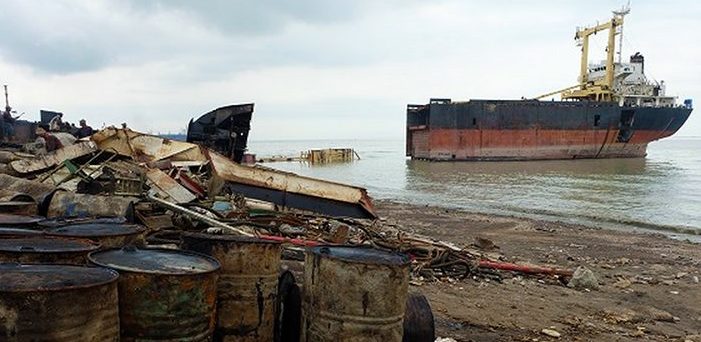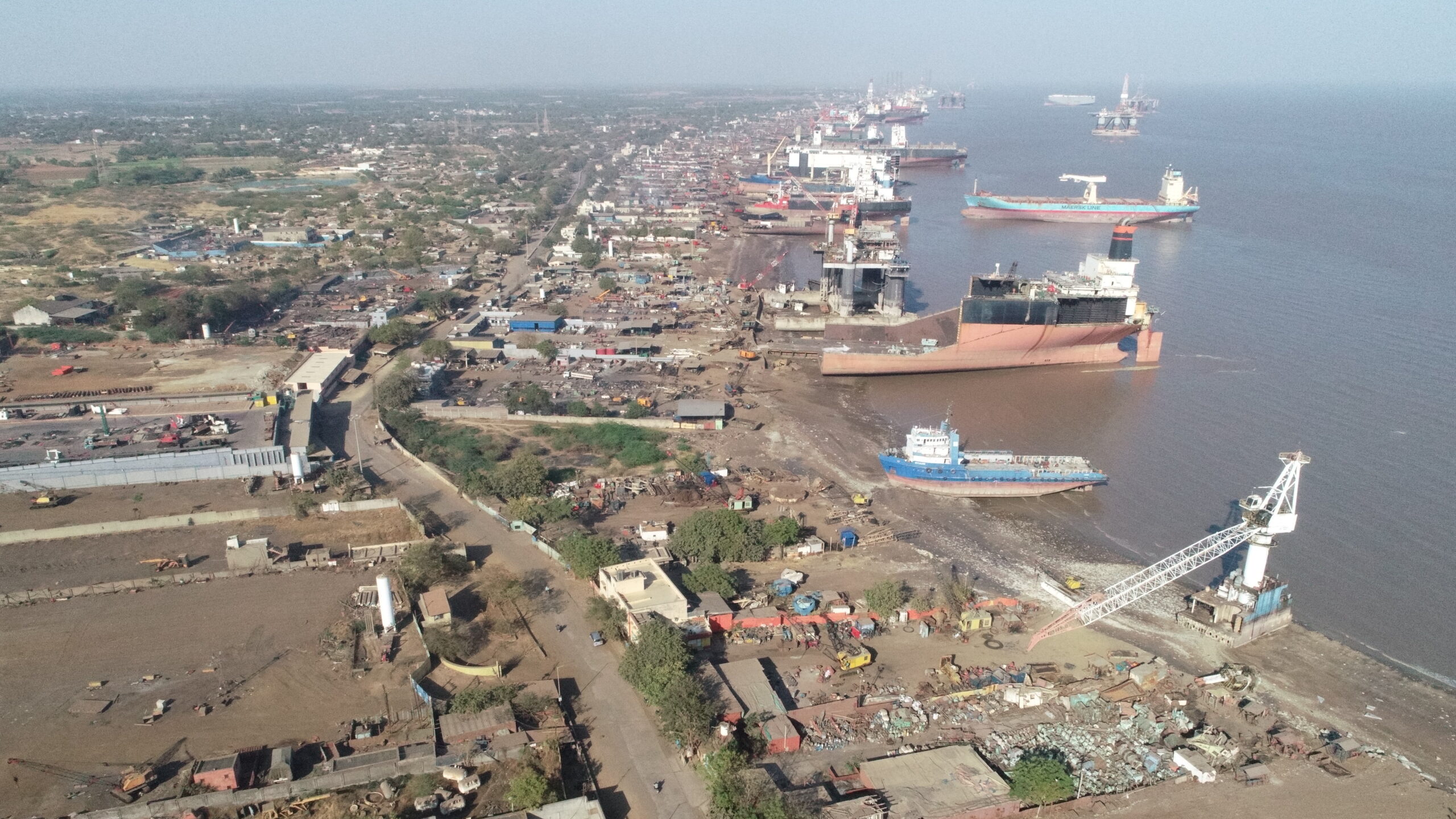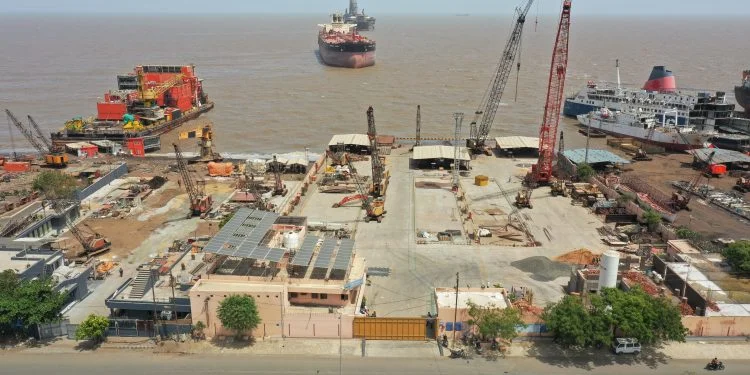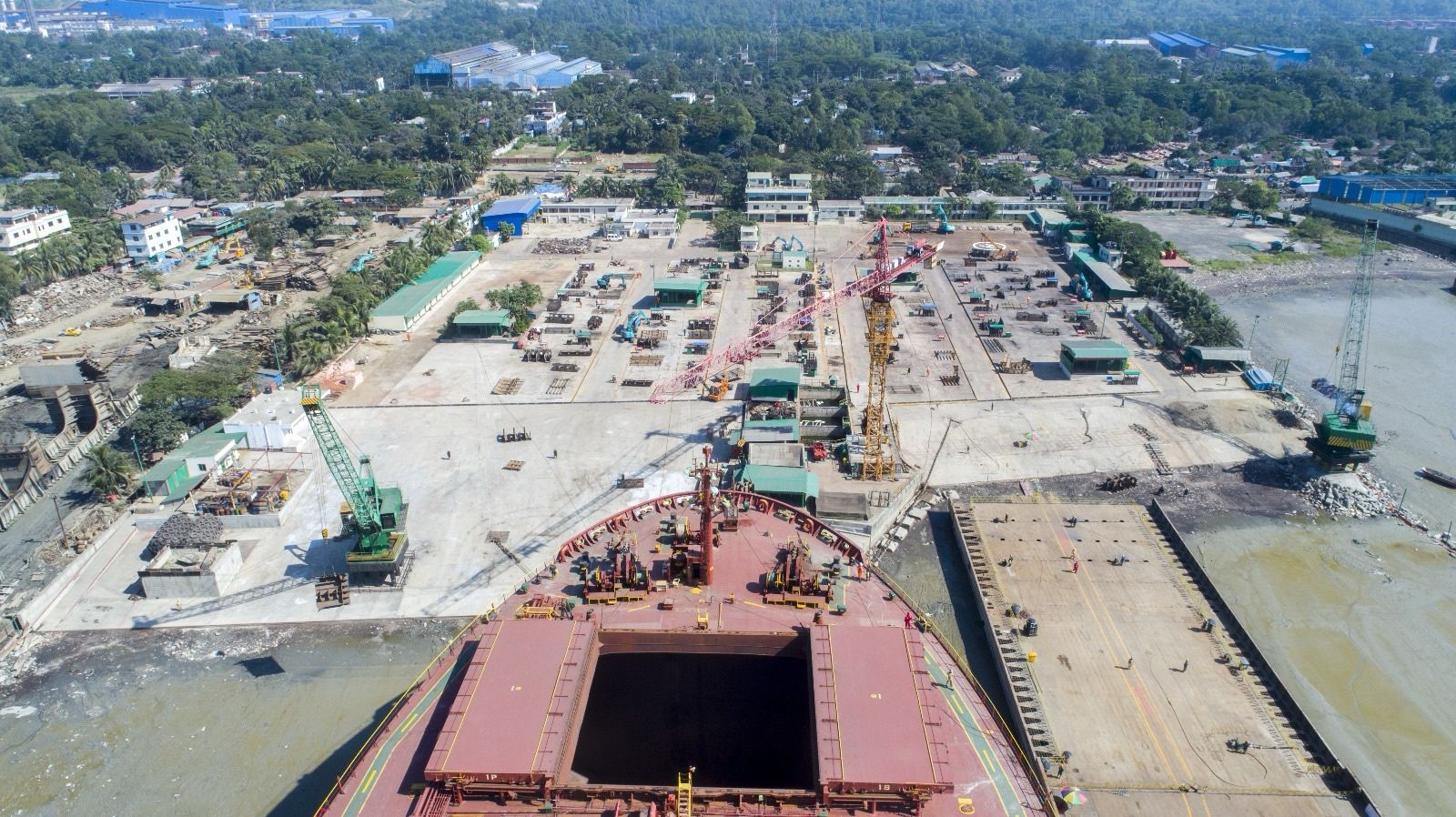U.S.-Sanctioned Vessel “NIRVANA” Arrives at Alang
ALANG, India — A vessel with a controversial past has arrived at India’s largest ship recycling yard, reigniting concerns over the dismantling of U.S.-sanctioned ships on South Asian beaches. The vessel, currently known as NIRVANA and bearing IMO number 9158161, has been flagged by the U.S. Office of Foreign Assets Control (OFAC) as linked to entities under sanctions. The ship arrived at the Alang shipbreaking yard in Gujarat for dismantling.

According to OFAC records, the vessel is connected to SAFE SEAS SHIP MANAGEMENT FZE, a company listed under OFAC’s Specially Designated Nationals (SDN) list. Vessels and aircraft on this list are considered blocked property, meaning that U.S. persons are generally prohibited from dealing with them and that their financial assets are subject to seizure or restriction if they come under U.S. jurisdiction. The ship, flagged under St. Maarten, entered Indian waters for its final dismantling journey.
The ship in question, NIRVANA, has had multiple name changes and ownership transfers over its operational life, a tactic sometimes used to obscure compliance responsibilities and avoid detection. However, its IMO number — a unique identifier that remains constant regardless of name or flag changes — continues to tie it directly to SAFE SEAS SHIP MANAGEMENT FZE, the entity sanctioned by OFAC.
OFAC listings are considered serious international red flags, and businesses worldwide — including those outside U.S. jurisdiction — are generally advised to avoid dealings with listed entities and their assets.
Despite these red flags, the vessel managed to enter Indian territorial waters and dock at the Alang yard, one of the busiest shipbreaking facilities in the world.
The arrival of NIRVANA has stirred debate in maritime and policy circles about enforcement gaps in international sanctions regimes. While OFAC sanctions apply primarily to U.S. persons and companies, their global impact is significant because of the dominance of the U.S. dollar and international shipping insurance systems, many of which fall under U.S. regulatory frameworks.
“How did a sanctioned vessel slip through the cracks and reach a port in India?” asked a compliance analyst with an international maritime watchdog based in Mumbai. “This points to a lack of coordination between Indian port authorities and global sanction-monitoring systems.”
Although India is not legally bound to follow U.S. sanctions, many Indian companies voluntarily adhere to them due to their global business connections and concerns about reputational risk. Banks, insurers, and shipping agents, particularly those with ties to the U.S. or dollar-denominated transactions, can face significant penalties for facilitating activities linked to sanctioned entities.
Alang, once hailed as the ship recycling capital of the world, has been under increasing pressure to reform its practices. The arrival of OFAC-listed ships undermines those efforts, critics argue, especially as India works to align itself with global standards under the Hong Kong International Convention for the Safe and Environmentally Sound Recycling of Ships.
“The problem isn’t just regulatory,” said a maritime legal expert and policy adviser. “It’s also reputational. Every time a sanctioned vessel is dismantled at Alang, it calls into question India’s commitment to ethical ship recycling and compliance with international norms.”
The recent arrival of NIRVANA is likely to invite fresh scrutiny from international agencies, many of whom advocate for cleaner, safer, and legally compliant recycling processes.
Ship recyclers at Alang have defended themselves, stating that the purchase and delivery of vessels for scrapping are typically brokered by intermediaries and often involve opaque ownership structures. “We follow the documentation we are provided. It’s not always easy to determine whether a ship is sanctioned unless authorities provide clear information,” said a representative from a local shipbreaking company, speaking on condition of anonymity.
However, with mounting pressure from international stakeholders, there are growing calls for India’s Directorate General of Shipping and other relevant authorities to strengthen due diligence procedures. Proposals include integrating automated checks of IMO numbers against global sanctions databases before ships are allowed entry into Indian ports.
In recent years, some shipping registries and financial institutions have begun implementing Artificial Intelligence (AI) tools and blockchain technologies to trace vessel histories and ownership patterns more accurately. Advocates hope similar systems can be adopted at Alang to prevent sanctioned ships from slipping through.
The NIRVANA’s final voyage to Alang is more than just the end of a ship’s life — it’s a microcosm of the challenges facing the global ship recycling industry. As long as enforcement gaps, opaque ownership structures, and jurisdictional limitations persist, vessels linked to sanctioned entities may continue to find refuge in recycling yards where oversight is patchy.
For India, a rising maritime power with ambitions of aligning with international environmental and compliance standards, the arrival of NIRVANA is a stark reminder that more robust safeguards are needed to protect its credibility — and the sustainability of its shipbreaking industry.
Author: shipping inbox
shipping and maritime related web portal








